A descendant of the Archduke Franz Ferdinand, whose assassination in Sarajevo triggered the first world war, has said that his family should not be blamed for causing the war that led to 37 million people killed or wounded.
In an interview with a European group of newspapers including the Guardian, Karl Habsburg-Lothringen, the grandson of the last emperor of the Austro-Hungarian empire, Charles I, said: "If you were to simplify it, you could say that the shooting in Sarajevo started the first world war. But if there hadn't been the shooting in Sarajevo, it would have kicked off three weeks later somewhere else."
The fatal shooting of the Austrian archduke on 28 June 1914, by the 19-year-old Bosnian Serb Gavrilo Princip, is widely held to have triggered a chain reaction that dragged Russia, Germany and eventually France and Britain into war.
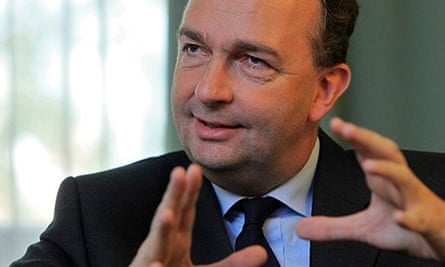
Habsburg-Lothringen said he believed there was no need for his family to show remorse for the tragedy of the first world war "because that would mean we had been guilty in the first place, and that we would have to redeem ourselves for something".
"It would be wrong to point the finger at one state," he said. "If you do that, you would have to take into account that there were already significant tensions, especially between Germany and Russia, who had already started to mobilise their troops along the borders."
He said he sympathised with the thesis that there was a readiness for war among all the leading European nations. "Many were already in the starting blocks, waiting for the great conflict. If you had to blame someone, then the greatest blame would lie with nationalism itself," he said.
Austria-Hungary, an empire of 50 million people, and tsarist Russia had for decades pursued a policy of confrontation over influence in eastern Europe, leading to the 1912 Balkan war that anticipated the larger conflict. But Habsburg-Lothringen said his grandfather, the last emperor, had only "inherited the war".
"He had nothing to do with it. In addition, he had made several attempts to pacify the situation, which he was criticised for at the time, and he used family contacts to lead peace talks."
Charles I "clearly saw that a basic problem was the situation of the Slavic people within the Habsburg empire".
"Maybe he also realised that the Serbs saw him as their main enemy," Habsburg-Lothringen said, "because he wanted to balance out, but essentially minimise, the dominating influence of the Serbs among the Slavic people."
Princip wanted Bosnia to become part of Serbia; Austria issued Serbia with a series of demands which would force them to investigate the killing and crack down on anti-Austrian propaganda, demands that were mostly accepted by Serbia; a month later Austria declared war on Serbia. When Russia mobilised in support of its ally Serbia, Germany declared war on Russia, and then France, and invaded Belgium. When Germany did not withdraw from Belgium, Britain declared war on Germany on 4 August.
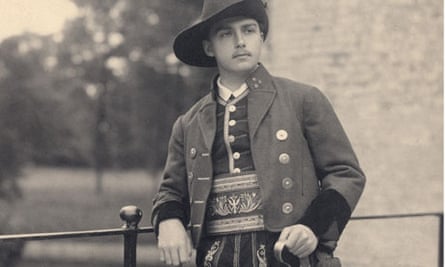
Some historians argue the Habsburg empire's multi-ethnic central European policy had become outdated and was doomed for failure. But Habsburg-Lothringen argued that the vision pursued by his father, Otto von Habsburg, the last crown prince of Austria-Hungary, was more relevant than ever.
"I am happy that Europe has developed in the way in which he had envisioned. The EU was the continuation of the old idea of a super-national empire by other means. That's what Otto von Habsburg saw in Europe and what he wanted. The circumstances have changed, that's right, but we are working on the idea of a super-national legal structure and a subsidiarity principle."
Karl Habsburg-Lothringen, president of the Association of National Committees of the Blue Shield, dedicated to the protection of cultural goods in war zones, said: "I have been in Africa a lot and seen how they see Europe. The Africans think that Europe looks to the future, they admire the idea of a European court. The idea of the nation state belongs to the past century."
After the end of the first world war, members of the Habsburg family were forbidden by law from running for the Austrian presidency. In 2011, Ulrich Habsburg-Lothringen successfully challenged the ban in court. Karl Habsburg-Lothringen supported his cousin's action: "The Habsburg law is absurd, there's nothing else to be said about it.
"All our rights were taken away from us, we were dispossessed and sent into exile. Our assets were put into a fund and should have been returned to us after that fund was dissolved. But that never happened.
"For example, I grew up with the grotesque situation that I as a child had an Austrian passport, issued in Munich, in which it said that I could to travel to every country in the world apart from Austria. That rule was only changed at the end of the 60s."
He said the severity with which the Austrian authorities had discriminated against his family was not representative of the mood among the people.
Asked if there was a Volkszorn, a popular anger against the Habsburg family in Austria, he said: "On the contrary, there was always a lot of sympathy for the Kaiser – also because it was recognised how much he engaged himself for peace, for the care of the starving.
"Most of the members of my family regard this war not just as part of a country's history but as part of our family history."
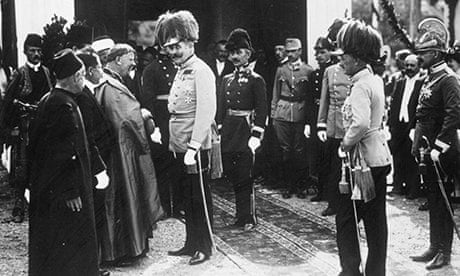
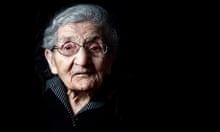
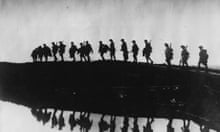
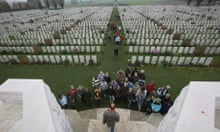


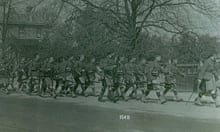
Comments (…)
Sign in or create your Guardian account to join the discussion